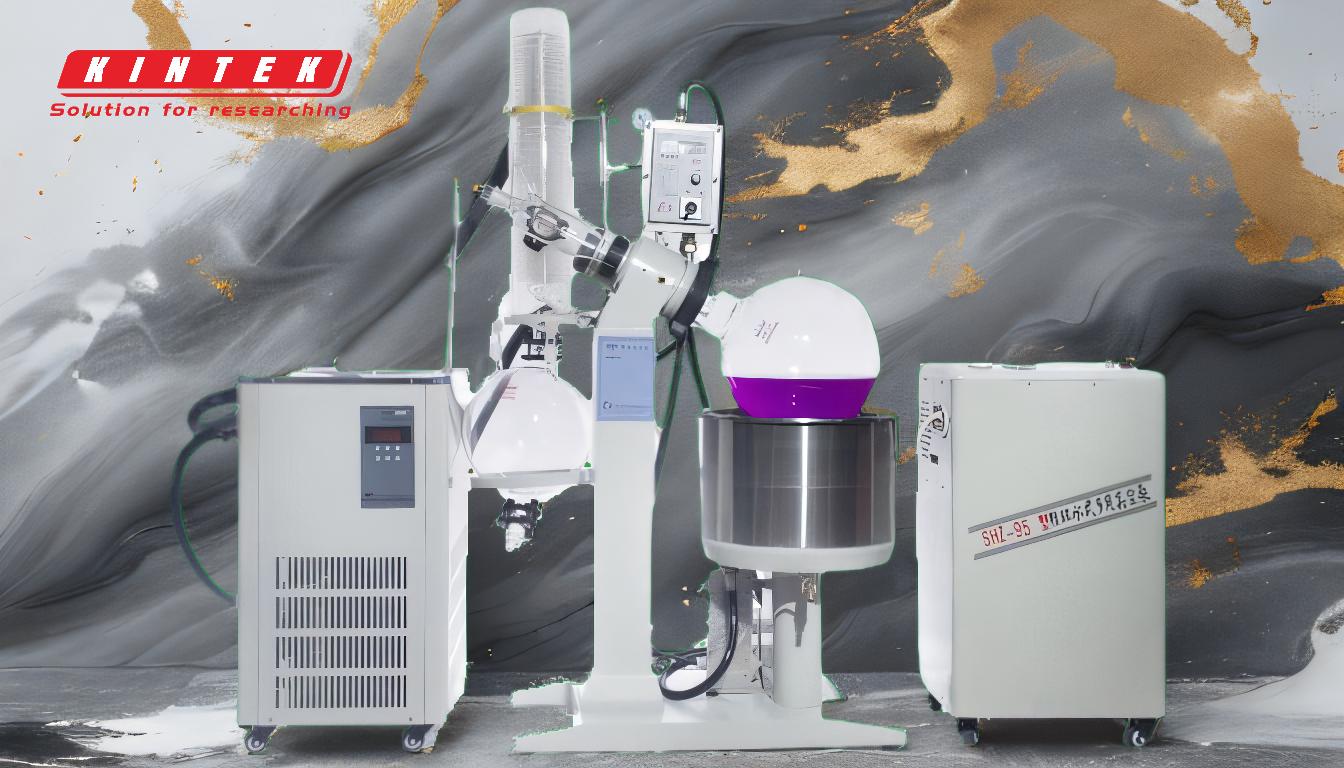Vacuum distillation is a specialized separation technique used to purify and separate mixtures of liquids that are sensitive to heat or have high boiling points. By reducing the pressure inside the distillation apparatus, the boiling points of the components are lowered, allowing them to evaporate and condense without thermal degradation. This method is widely applied in industries such as pharmaceuticals, food, chemicals, and desalination. It is particularly effective for heat-sensitive materials like essential oils, vitamins, fatty acids, and polymers, as well as for removing impurities such as solvents, monomers, and colorants. Vacuum distillation ensures high-purity distillates and minimizes thermal damage, making it indispensable for processing complex and delicate mixtures.
Key Points Explained:

-
Principle of Vacuum Distillation:
- Vacuum distillation operates by lowering the pressure in the distillation system, which reduces the boiling points of the components in the mixture.
- When the vapor pressure of a component equals the surrounding pressure, it evaporates, condenses, and is collected as a high-purity distillate.
- This method is ideal for substances that decompose or degrade at their normal boiling points.
-
Applications in Industrial and Chemical Processes:
- Desalination: Vacuum distillation is used to remove salt from seawater, producing fresh water efficiently.
- Pharmaceuticals: It is employed to purify heat-sensitive compounds like vitamins, essential oils, and plant extracts.
- Food Industry: Used for decolorization, deodorization, and removal of solvent residues in food-related products.
- Chemical Industry: Suitable for processing high-boiling-point materials such as fatty acids, polyols, and epoxy resins.
-
Separation of Heat-Sensitive Materials:
- Vacuum distillation is particularly effective for materials that are sensitive to heat, such as:
- Natural and synthetic vitamins.
- Essential oils and plant extracts.
- Fatty acids and their derivatives.
- Polymers like polyurethane and epoxy resins.
- By operating at lower temperatures, it minimizes thermal damage and ensures the integrity of the final product.
- Vacuum distillation is particularly effective for materials that are sensitive to heat, such as:
-
Removal of Impurities:
- The technique is used to remove light molecular substances (e.g., solvents, monomers) and heavy substances (e.g., colorants, phenols) from mixtures.
- Applications include:
- Desolventizing and deodorization of chemical raw materials.
- Decolorization of natural intermediates and fatty acids.
- Purification of heat-sensitive materials in the production of cosmetics and building materials.
-
Advantages in High-Purity Production:
- Vacuum distillation ensures high-purity distillates by preventing thermal decomposition and reducing contamination.
- It is widely used in the preparation of high-boiling-point process materials and the determination of boiling ranges for heat-sensitive substances.
-
Use in Advanced Technologies:
- Short-Path Distillation: A specialized form of vacuum distillation used for processing materials like polyphenols, lactic acid, and heavy oils. It is particularly effective for heat-sensitive and high-boiling-point substances.
- Molecular Distillation: Used for refining heat-sensitive materials, improving traditional technologies, and optimizing product synthesis processes.
-
Industries Benefiting from Vacuum Distillation:
- Chemical Industry: For the purification of high-boiling-point liquids and heat-sensitive compounds.
- Pharmaceutical Industry: For the production of high-purity drugs and intermediates.
- Food and Cosmetic Industries: For the removal of impurities and the concentration of natural extracts.
- Environmental Applications: Such as desalination and wastewater treatment.
By leveraging the principles of reduced pressure and lower boiling points, vacuum distillation offers a versatile and efficient solution for separating complex mixtures, particularly those containing heat-sensitive or high-boiling-point components. Its applications span a wide range of industries, ensuring high-purity products and minimizing thermal degradation.
Summary Table:
| Aspect | Details |
|---|---|
| Principle | Lowers pressure to reduce boiling points, enabling evaporation and condensation without thermal degradation. |
| Applications | Desalination, pharmaceuticals, food, chemicals, and environmental processes. |
| Heat-Sensitive Materials | Vitamins, essential oils, fatty acids, polymers, and more. |
| Impurity Removal | Removes solvents, monomers, colorants, and phenols. |
| Advantages | High-purity distillates, minimal thermal damage, and versatile industrial use. |
| Advanced Technologies | Short-path and molecular distillation for refining heat-sensitive materials. |
Unlock the potential of vacuum distillation for your industry—contact our experts today!










